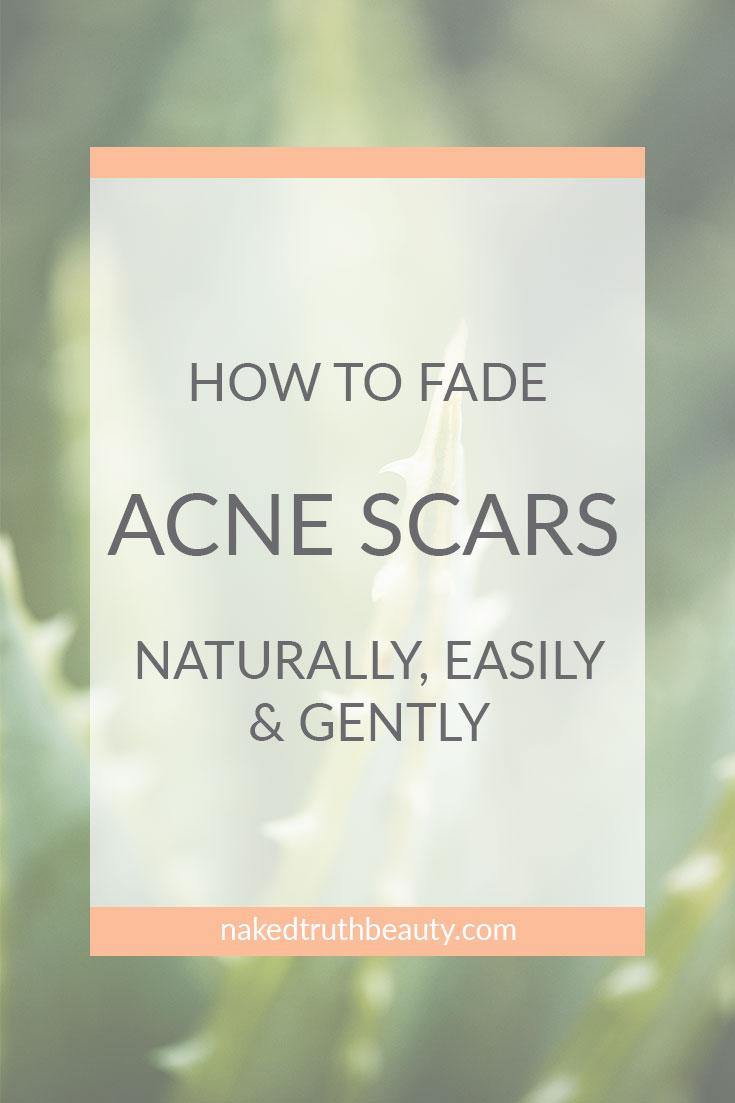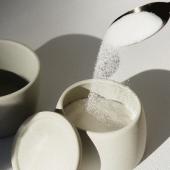How to fade acne scars quickly and without toxic ingredients
Acne. What a sinister word. As if dealing with active breakouts weren't enough, there's the scarring, and the more traumatizing the breakout, the worse the scarring. Sure, that makes sense, but it's still cruel.
When a friend asked me about best oils for lightening scars from photodermatitis caused by squeezing lime juice on her tacos before time in the sun (more about avoiding photodermatitis later), I went down a deep rabbit hole. One of my side trips on this research journey led me to rediscover the magic that is the easiest and most reliable acne treatment and scar remedy I have found yet.
Caveat: Everyone's skin is different. With that said, this method is working fantastically for not only managing my pregnancy acne (there is a bit of chicken or the egg going on here, to be truthful), but – more significantly – for reducing the appearances of my scars, new and old.
So what is this magic remedy? Can it really be cheap, easy, and non-toxic? IT SURE CAN!
The magic ingredient: MSM, or Methylsulfonylmethane if you want to be fancy about it.
What is MSM?
MSM is a naturally occurring organosulfur compound that provides biologically active sulfur to the body1. While sulfur may make you think of rotting eggs, it's actually hugely important to our health. Sulfur is the third most common mineral in the body based on percentage of body weight, and the sixth most abundant mineral in breast milk2. We get MSM naturally from lots of our everyday foods, including fruits, veggies, grains, beer, coffee, tea, and cow milk1. As you can imagine, it's important that we get enough MSM in our diets, and the supplement has become very popular because many of us don't. In fact, MSM may be beneficial for treating many symptoms and diseases from allergies, to arthritis, to bladder disorders1,2. While this is super cool, the supplement needs to be used carefully, and we'll save internal use for another time. As with pretty much everything, too much of a good thing can be bad, so if you're curious about taking MSM internally, please do your research and consult with your doctor first.
How does MSM help the skin?
MSM benefits skin quality and texture by acting as a sulfur donor to keratin1. To oversimplify, Keratin is a protein within cells, and is particularly important to the (epithelial) cells that make up the top layer of our epidermis/skin. Keratin is structurally important to the skin because it creates a barrier by binding skin cells together, and forms the protective outer layer of our skin3. It is also key to the strength and resiliency of skin, and is a key player in resisting and healing from damage and minor trauma (like acne!)4. Long story short, helping keratin do it's job is a major win for skin health. Thanks, MSM!
MSM is also a powerful anti-inflammatory, which may explain its help in reducing redness and active breakouts.
The Results
MSM supports the skin in doing its own reparative work, while simultaneously helping any current irritation to calm the heck down. The result is less trauma to the skin, which means smoother, more even texture and tone. I'm talking easing the appearance of those deep, rolling acne scars, as well as hyperpigmentation (red, brown, or purple spots).
To be honest, I've only been on this method for about a month, but using topical MSM every night has made an enormous difference. My skin is more "full," even, and less red and blotchy. This won't magically make any imperfections disappear overnight, but using it nightly WILL make a difference. Of course, if you have irritation of any kind, please stop.
As someone who's been suffering from relentless acne (shoutout to pregnancy hormones!), I understand wanting a miracle cure. This is not that, but for me it's really helping, and waking up every morning to skin that's less inflamed than the skin I said goodnight to feels really good. I hope it works for you too!
How to do it
As a supplement, MSM comes as a coarse flake that looks a lot like salt. Like salt, it dissolves in water, but not oil, so just mixing it in with your usual oil serum won't cut it. I suppose you could do straight water, but it'd be difficult to apply and won't keep well.
What to do, what to do... What is water based, good for your skin, and (ideally) formulated to withstand bacteria? Aloe! Please do make sure the aloe you use has a broad spectrum preservative. (I talked about that previously here.)
EASIEST DIY RECIPE EVER:
INGREDIENTS
- 1 part MSM (I bought this MSM)
- 1 part Aloe Vera Gel (I bought this one a while back, but it now has sodium benzoate, which can be irritating and is a 3 on EWG - no thanks. I'm going to try this one next from PNW-based Amara Organics. I have the reservation that it says "organic" without the USDA organics seal, but the pickings are a little slim.)
DIRECTIONS
- Do your usual cleansing and mosturizing routine. This step should be last.
- Mix MSM and Aloe in the palm of your hand until mostly dissolved. I find that the higher content of MSM, the more anti-inflammatory the effects, but feel free to experiment with the ratio that works best for you. It also doesn't bother me if it's not totally dissolved, so I do have some clumps.
- Apply to affected areas. If you still have some MSM crystals, be gentle in your application. You don't want to scratch your skin and cause more irritation.
- I also like to slather this all over my face in a sort of creepy paste/gelly mask, so I wouldn't recommend taking any visitors while wearing this. But you do you.
DISCLAIMER: The aloe I've been using soaks into my skin and evaporates over night, and I wake up with MSM crystals all over my face. I don't see an issue with this (priorities, people), but I have to warn you so you're prepared on that first morning.
WARNING: Please consult your doctor if you have a sulfite allergy. Discontinue use if any irritation occurs, and consult a physician in symptoms persist.
Have you tried this method? How did it work for you?
References
- (Butawan, M., Benjamin, R. L., & Bloomer, R. J. (2017). Methylsulfonylmethane: Applications and Safety of a Novel Dietary Supplement. Nutrients, 9(3), 290. http://doi.org/10.3390/nu9030290)
- Parcell, S. (2002). Sulfur in human nutrition and applications in medicine. Altern Med Rev, 7(1):22-44. https://www.ncbi.nlm.nih.gov/pubmed/11896744
- Robb, A. (n.d.). Keratin Protein & the Epidermis. Study.com. http://study.com/academy/lesson/keratin-protein-the-epidermis.html
- Genetics Home Reference. (2017). Keratins. U.S. National Library of Medicine. https://ghr.nlm.nih.gov/primer/genefamily/keratins





